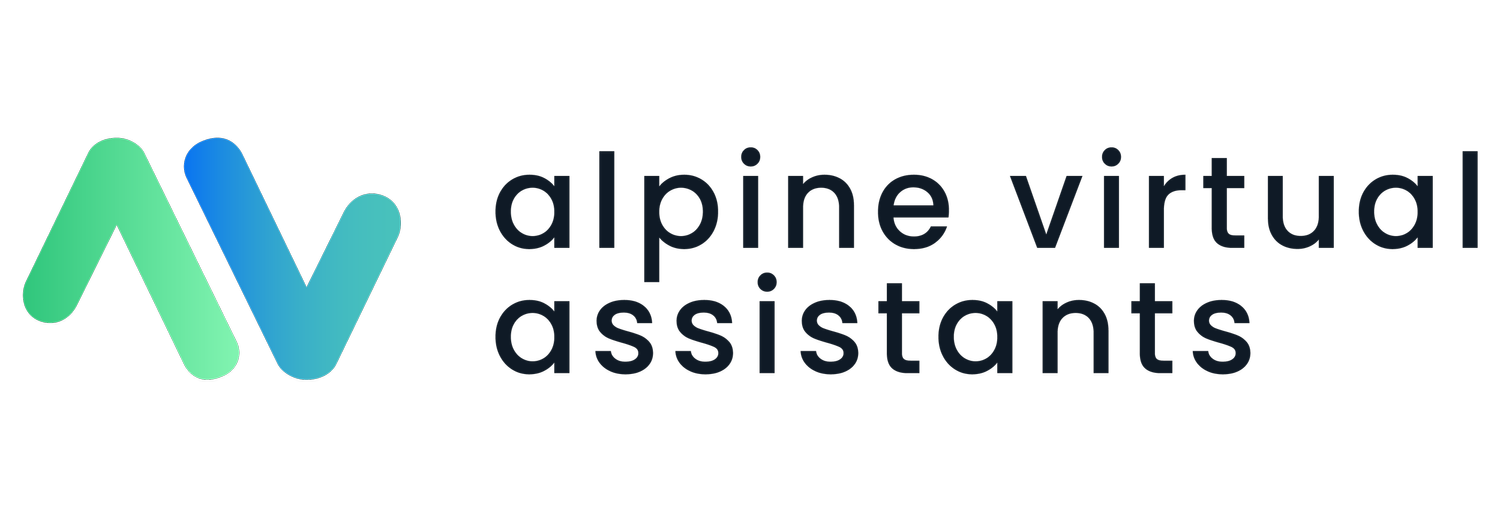What AI-Powered Tools Can Slash Your Startup's Operational Costs
AI tools are a dime a dozen right now. Some are great, and some are not-so-great in reality. AI tools can transform the way your business operates, save your VA time, and save you money if you choose the right ones. Not the flashy, headline-grabbing stuff you see on TechCrunch, but practical, roll-up-your-sleeves AI that actually saves real money. These tools didn't just trim our budget, they transformed how we operated, freeing up capital to reinvest in growth instead of overhead.
If you're a startup founder watching every dollar, this post is your roadmap to cutting operational costs without sacrificing quality. Let's dive into the AI tools that can put money back in your pocket.
Customer Service: Turn One Support Rep Into a 24/7 Team
Customer support used to be a massive expense. Hire too few reps, and customers wait forever. Hire too many, and you're overpaying for downtime. AI customer service tools solve this beautifully.
Chatbots and AI Support Systems Tools like Intercom's Resolution Bot or Zendesk's Answer Bot handle 70-80% of basic customer inquiries instantly. We're talking password resets, order status checks, FAQ responses…the stuff that eats up human time but doesn't require human creativity.
A Denver SaaS startup I know reduced their support costs dramatically using these tools. Instead of hiring three full-time support reps at $68,000 each, they invested $3,000 in AI tools and kept one human for complex issues. That's $133,000 in savings, plenty to fund their marketing.
Marketing Automation: Stop Paying for Tasks Robots Can Do
Marketing is essential, but it doesn't have to drain your budget. AI-powered marketing tools automate the repetitive stuff, so you can focus on strategy instead of execution.
Content Creation and Social Media Tools like Jasper AI or Copy.ai generate blog posts, social media captions, and email copy in minutes. During my VA years, I watched clients spend entire days on content creation. Now I show them how AI can generate solid first drafts in minutes, leaving more time for strategy and relationship-building.
For social media scheduling, tools like Buffer's AI Assistant or Hootsuite's AI-powered insights automatically optimize posting times and suggest content improvements. You just need your virtual assistant to manage the process and double-check the AI’s work.
Email Marketing Optimization Mailchimp's predictive insights and Klaviyo's AI-driven segmentation automatically personalize email campaigns based on customer behavior.
Accounting and Financial Management: Automate the Number Crunching
Nothing kills startup momentum like spending hours on bookkeeping. AI-powered financial tools handle the grunt work so you can focus on growing revenue.
Automated Bookkeeping QuickBooks' AI features automatically categorize expenses, match transactions, and even predict cash flow trends. Tools like Bench combine AI with human oversight (another task you can hand off to your VA) to handle your books.
Invoice Processing and Bill Pay Tools like Bill.com's AI automatically processes invoices, matches purchase orders, and flags discrepancies. You're paying $39/month for software that never takes sick days or makes calculation errors.
Human Resources: Streamline People Operations
HR tasks multiply as you grow, but AI tools can handle much of the administrative burden without adding headcount.
Recruiting and Screening HireVue's AI interviews candidates via video, analyzing not just their answers but their communication patterns and cultural fit indicators. Workday's AI screens resumes and ranks candidates automatically. This can reduce your time to hire and eliminate and eliminated the need for a dedicated recruiter until you grow. Your VA can handle the process from here!
Employee Onboarding and Training BambooHR's AI guides new hires through onboarding automatically, while tools like Docebo create personalized training paths based on role and learning style. Instead of having your operations manager spend hours on paperwork and training, AI handles the routine stuff while humans focus on relationship-building.
Operations and Project Management: Optimize How Work Gets Done
AI doesn't just automate tasks…it optimizes entire workflows to eliminate waste and redundancy.
Predictive Analytics for Inventory If you're selling physical products, AI tools like Netstock or Demand Planning from Oracle predict inventory needs with scary accuracy.
Smart Scheduling and Resource Allocation Tools like Monday.com's AI or Asana Intelligence automatically schedule tasks based on team capacity, deadlines, and priorities.
Sales Process: Turn Leads Into Revenue Faster
Sales is where AI really shines, automating follow-ups and qualifying leads so your team focuses on closing deals, not chasing prospects.
Lead Scoring and Qualification Salesforce Einstein or HubSpot's AI automatically scores leads based on behavior and demographics, prioritizing your sales team's time on prospects most likely to buy.
Automated Follow-Up Sequences Tools like Outreach or Salesloft use AI to personalize follow-up emails and determine optimal timing for outreach. Instead of hiring additional sales development reps, you're investing in AI that never forgets to follow up and always sends the right message at the right time. Then let your VA manage the process!
Data Analysis: Turn Information Into Insights
Startups generate massive amounts of data, but most lack the resources to analyze it effectively. AI tools democratize data analysis, giving you enterprise-level insights on a startup budget.
Business Intelligence Tools like Tableau's AI features or Microsoft Power BI automatically identify trends and anomalies in your data.
Predictive Maintenance and Operations If you're in manufacturing or have physical operations, AI tools predict equipment failures before they happen, reducing downtime and repair costs.
How to Choose the Right AI Tools for Your Startup
With thousands of AI tools available, choosing the right ones can feel overwhelming. Here's my framework for making smart decisions:
Start With Your Biggest Pain Points Don't try to automate everything at once. Identify your top three operational headaches (usually customer service, marketing, and accounting) and tackle those first.
Calculate the Real ROI Look beyond the subscription cost. If a $100/month reduces the number of hours you need to pay staff, that’s a huge ROI. Factor in onboarding time, training costs, and the opportunity cost of your time spent on manual tasks.
Test Before You Commit Most AI tools offer free trials. Use them. Set up real workflows with real data to see how the tools perform under actual conditions, not demo scenarios. Have your VA run these workflows and give you their feedback.
Plan for Integration Choose tools that play well together. An AI tool that requires manual data entry defeats the purpose. Look for platforms that integrate with your existing software stack.
Implementation Strategy: Rolling Out AI Without Breaking Things
Here's how to implement AI tools without disrupting your operations:
Phase 1: Automate the Obvious (Month 1) Start with no-brainer automations like chatbots for basic customer service, email scheduling, and expense categorization. These provide immediate value with minimal risk.
Phase 2: Optimize Workflows (Months 2-3) Once your team is comfortable with basic AI, introduce more sophisticated tools for lead scoring, predictive analytics, and process optimization.
Phase 3: Advanced Integration (Months 4-6) Implement AI tools that require more setup and training, like advanced CRM automation or predictive inventory management.
What This Means for Your Bottom Line
Let's do the math on a typical startup scenario. Say you're a 10-person company spending:
$8,000/month on customer service
$6,000/month on marketing tasks
$3,000/month on bookkeeping and admin
$4,000/month on various operational inefficiencies
That's $21,000 monthly, or $252,000 annually.
With strategic AI implementation managed by your VA, you could realistically cut these costs by 40-60% without losing any efficiency…in fact, you'll probably improve it:
Customer service: $3,200/month (your VA manages AI that handles 80% of inquiries)
Marketing: $2,400/month (your VA oversees AI content creation and optimization)
Bookkeeping: $1,200/month (your VA manages AI tools for data entry and categorization)
Operations: $2,000/month (your VA uses AI to optimize workflows and scheduling)
Your new total: $8,800/month, or $105,600 annually.
That's $146,400 in annual savings…and the best part? Your VA handles all the AI management, so you don't have to learn new systems or monitor dashboards. You just get better results with less effort.
The Bottom Line: AI Isn't the Future, It's Right Now
Every month you delay implementing AI tools is money left on the table. These aren't experimental technologies anymore…they're proven solutions being used by thousands of successful startups.
The founders who embrace AI now will have a massive advantage over those who wait. While their competitors burn cash on manual processes, AI-powered startups will reinvest those savings into growth, creating a compounding advantage that becomes harder to overcome each quarter.
Ready to slash your operational costs and reinvest in growth? Start with one AI tool this week. Pick your biggest pain point, choose a solution, and commit to a 30-day trial. Hire a VA to mange the process. Your future self (and your bank account) will thank you.
The question isn't whether AI will transform startup operations….it already has. The question is whether you'll be leading the charge or playing catch-up.

